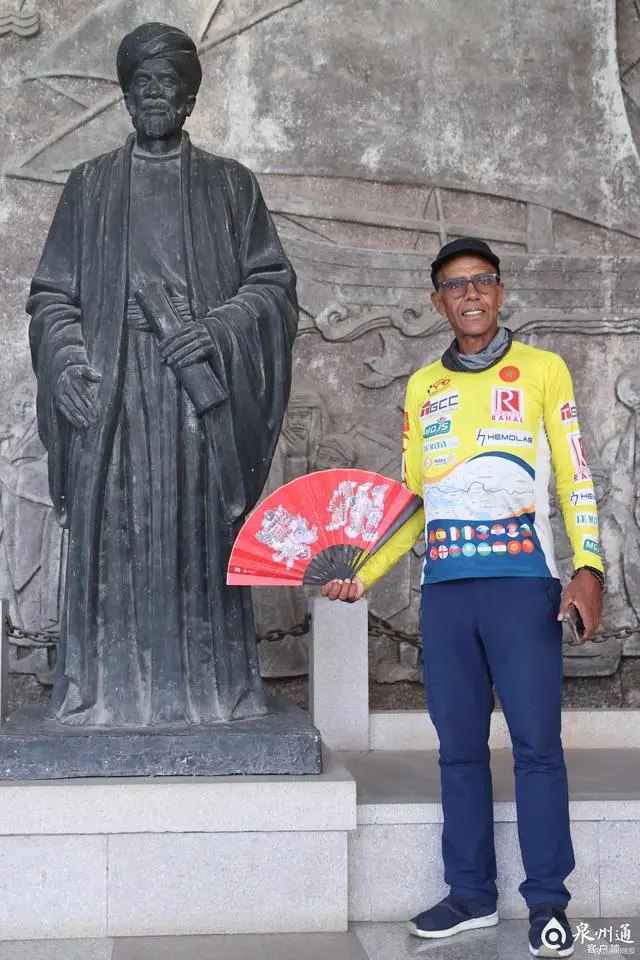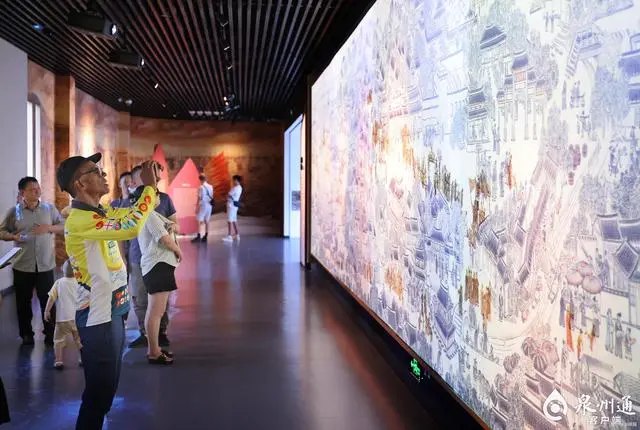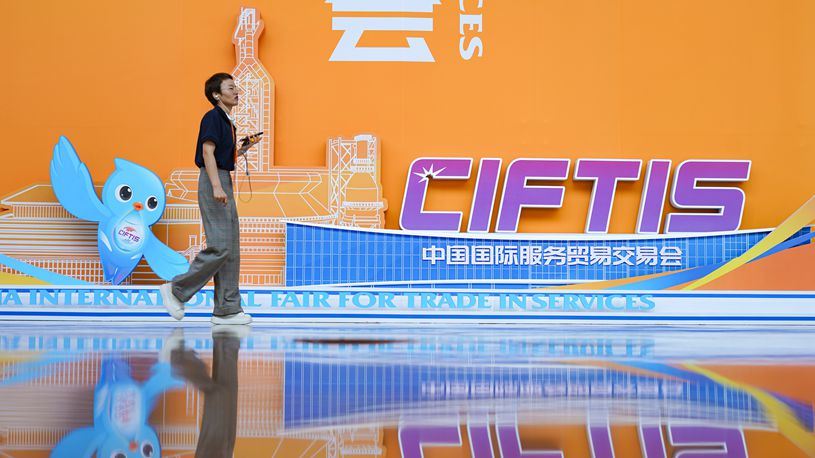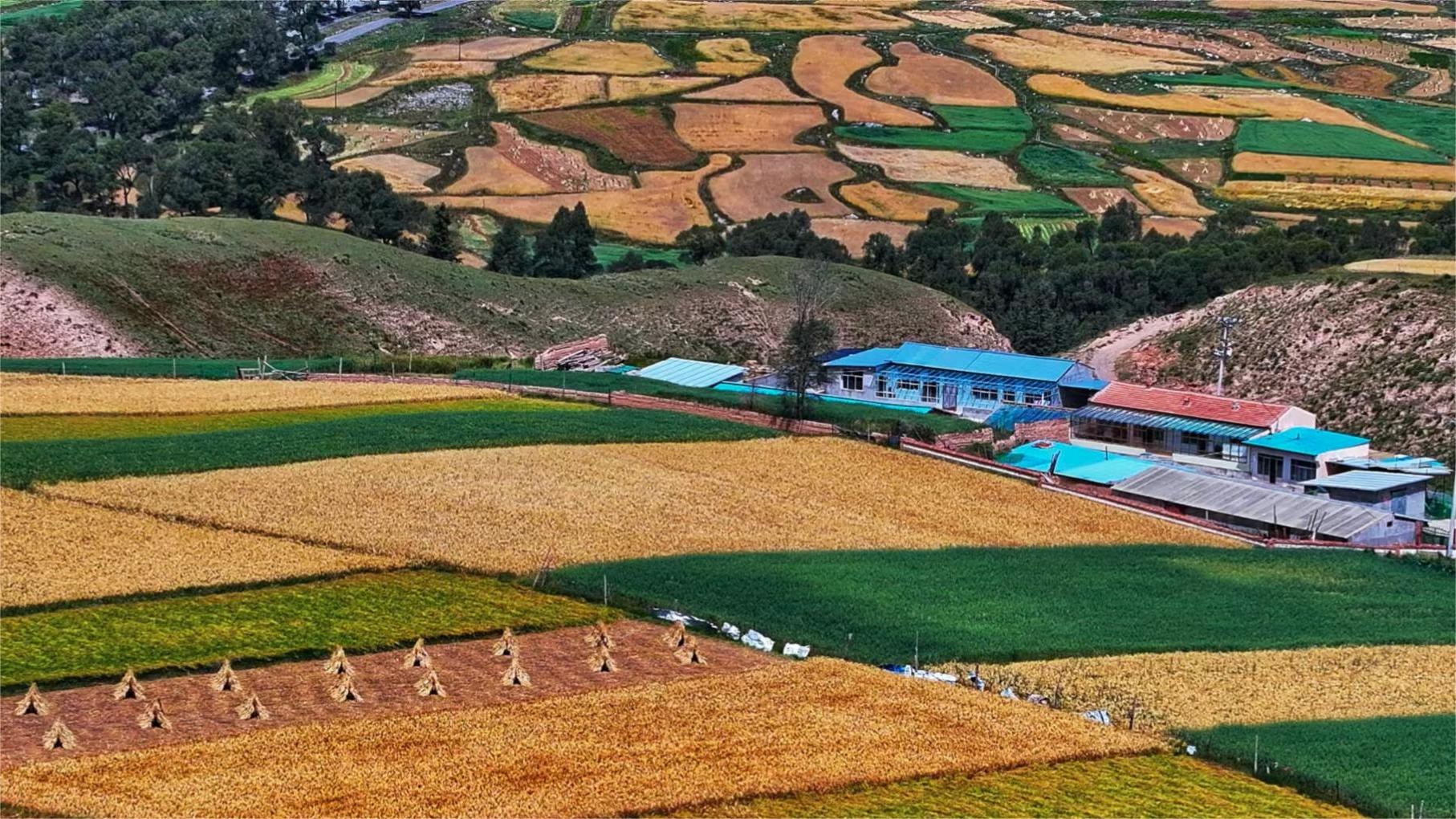Moroccan cyclist rides to China, impressed by development stimulated by BRI along the route
Ibn Battuta, a renowned Moroccan explorer in the 14th century, journeyed to China along the ancient Silk Road, forging connections between China, the Arab world, and Africa. At the age of 70, Moroccan cyclist Karim Mosta, driven by his fascination with China, decided to retrace the steps of the great explorer.
In February 2024, Mosta set off on his bicycle from Casablanca, Morocco, embarking on a 200-day-long journey that spanned 15 countries. He arrived in Beijing just before the opening of the 2024 Summit of the Forum on China-Africa Cooperation.

Karim Mosta journeys to China along the Silk Road. (Photo courtesy of the interviewee)
"I followed in Ibn Battuta's footsteps all the way to Beijing. While it took him 27 years of work and travel with various stops, I managed to complete the journey in just seven months," Mosta said.
"I undertook this adventure to explore the world, discover China, and the 15 countries I passed through, and to demonstrate to the young people of China and Morocco that all of this is achievable," he expressed.
With the goal of promoting people-to-people exchanges between China and Morocco, Mosta cycled through several Belt and Road Initiative (BRI) partner countries. Along the way, he witnessed the impressive development stimulated by BRI.
"It's truly amazing! The Chinese people have accomplished such a monumental feat from Kyrgyzstan to Kashgar, Xinjiang, ensuring smooth travel for people and trucks. The world is undergoing significant transformations, and I have been fortunate to witness many of them. I am thrilled to have traveled along the Silk Road to China," said Mosta.
"Morocco and China share a close bond. Upon arriving in China, I felt immense joy. It was truly amazing! The Chinese people showed me great care and kindness. I crossed the Gobi Desert, and at every stop along my journey, people were quick to lend a helping hand when they learned I had cycled from a distant place," he said.

Karim Mosta poses for a picture with a statue of Ibn Battuta, a renowned 14th-century Moroccan explorer, at the Quanzhou Maritime Museum in Quanzhou, southeast China's Fujian Province. (Photo/Quanzhou Evening News)
Mosta also visited the Quanzhou Maritime Museum in Quanzhou city, southeast China's Fujian Province. After posing for a picture with a statue of Ibn Battuta at the museum, Mosta said with excitement, "It's a great honor for me!"
Standing before the statue of Ibn Battuta, who was a witness to Quanzhou's illustrious history, Mosta mentioned that Moroccans are familiar with this city thanks to the statue. "Although I haven't had the chance to explore yet, I plan to visit Quanzhou with my wife."
The journey created beautiful memories for Mosta.

Karim Mosta takes pictures at the Quanzhou Maritime Museum in Quanzhou, southeast China's Fujian Province. (Photo/Quanzhou Evening News)
In north China's Inner Mongolia Autonomous Region, he was captivated by the innovative windbreak and sand control methods, such as the expansive saxaul trees, and wind and solar power generation facilities.
In Datong city, north China's Shanxi Province, he explored the ancient city wall and marveled at the UNESCO World Heritage site of the Yungang Grottoes. In Beijing, he wandered along the city's central axis, immersing himself in the rich historical and cultural tapestry that defines Beijing's unique allure.
Photos
Related Stories
Copyright © 2024 People's Daily Online. All Rights Reserved.









